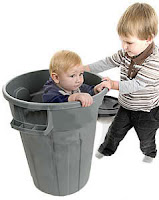Question
My son is an 8 yr old fraternal twin. He was diagnosed with ADHD and generalized anxiety disorder in the summer of 2018 and was diagnosed with autism (high functioning) in the summer of 2019. He is the oldest of 5 boys ranging from 8 to 14 months. My question is: How do I keep him from physically attacking the baby when he gets frustrated? This has only been happening physically since September of last year, but verbally has always said he hates the baby, wants the baby to die, etc. since he was born. I know it has to do with him feeling he's not getting the attention he wants, but with 5 kids, the youngest being of an age that is very demanding, I don't always get to focus on the 8-yrear-old as much as he would like.
Answer
Parents of a large family (i.e., 3 or more children) have to deal with personality clashes, attention tactics, and multiple mini-battles, and eventually come to realize that sibling rivalry is one of the inevitable annoyances of having kids. Moms and dads must learn that the degree of sibling rivalry, and whether or not it has long-term positive or negative consequences, depends on what they do about it.
Here are several ways that you can help your older child be friends with the younger ones:
1. If possible, start most days with "special time" with your oldest child. Often times, starting the day with 15 minutes of “special time” can ward off angry feelings in the child toward the new baby – and it is a good investment for the rest of the day.
2. When your older child says things like, “I hate the baby!” …always come back with the comment, “The baby loves you – and he looks up to you because you’re his BIG brother” (emphasis on “big”).
3. Promoting sibling harmony requires a bit of parental marketing. You may think that your older youngster should be thrilled to have gained a live-in friend, but kids are often preoccupied with what they've lost. They're not so keen on sharing their toys, their room, and most importantly, their mom and dad with someone else. Turn this around to help the normally egocentric youngster to imagine, "what's in it for me?" Use the term "special time" (you'll get a lot of marketing mileage out of the word "special"). The attention your older youngster apparently has lost from mom, he gains from dad. Arrange a lot of one-on-one outings for your older youngster (e.g., time at the park), so the youngster realizes that even though he's lost some time with mom, he's gets more special time with dad, grandparents, or other caregivers.
4. What bothers your older child the most is sharing you with the new baby. Since the concept of sharing is foreign to the child (as mom is his most important "possession"), it's unlikely that you'll be able to sell him on the concept of “sharing mother.” It sounds good to say that you'll give your older youngster equal amounts of your time, but in practice that's sometimes unrealistic. New babies require a lot of maintenance, and you don't have 200 percent of yourself to give. So what can you do? Wear your infant in a baby sling, which will give you two free hands to play a game with the older one. While feeding baby, you can read a book to the older sibling. Spending a lot of time sitting on the floor increases your availability to your child while your baby is in-arms or at-breast. As baby gets older, place him in an infant seat, or on a blanket on the floor to watch you play one-on-one with his big brother. This entertains two children with one parent.
5. While kids are created equally, it's impossible to treat them that way all the time. In their desire to prevent sibling squabbles, moms and dads strive to do everything the same way for all their kids, whether it's buying pajamas or selecting a college. Kids aren't the same; you don't need to behave as if they are. Make moment-by-moment decisions, and don't worry about the long-term consequences if you give one youngster more strokes than the other on any particular day.
6. In the future, as much as you can, try to divide chores equally among kids according to their ages and capabilities, yet don't beat yourself up trying to be 100 percent fair. You can't be. Remember, you are preparing your kids for life, and life does not treat people fairly and equally.
7. It's unrealistic for moms and dads to claim they never play favorites. Some parents and some kids have personalities that clash – others mesh. Some kids bring out the best in their parents – others push the wrong buttons. The key is to not let your kids perceive this as favoritism. Better yet, make them all feel special. If your youngster asks you a question, "Who do you love more – me or Johnny?" …give the politically correct answer: "I love you both in special ways."
8. Children are so caught up in their own emotions that they don't hear what you're saying. Show that you understand what your oldest child is going through by echoing his feelings (e.g., "Bobby, you feel like Jimmy is getting too much attention and that I love him more than you. But that’s not true. I love all my children equally.”).
9. Just for future reference (in case you have another child), get your older youngster acquainted with the new baby before birth. Show him pictures of a baby growing in mommy's belly. Let him pat the baby beneath the bulge, talk to baby, and feel baby kick. Replay the older youngster's babyhood. Sit down with your youngster and page through his baby photo album. Show him what he looked like right after birth, coming home from the hospital, nursing, and having his diaper changed. By replaying the older youngster's baby events, he will be prepared for a replay of his new brother or sister.
10. Make the older sibling feel important. Savvy visitors to your home (who themselves have survived sibling rivalry) may bring along a gift for the older youngster when visiting the new baby. In case this doesn't happen, keep a few small gifts in reserve for the older child when friends lavish presents and attention on the new baby. Let him be the one to unwrap the baby gifts and test the rattles. Give him a job in the family organization.
11. As the children grow up, minimize comparisons. This is also the basis for feelings of inferiority, which encourages undesirable behavior among siblings. Praise your older youngster for accomplishments in relation to himself and not in comparison to a sibling. Each youngster can feel he is special in the eyes of his parents. Kids are constantly being compared. Most of their life they will be rated on their performance (e.g., grades in school, batting order on the baseball team, races, games among themselves, etc.). The home is the only organization left that values a youngster for himself and not in comparison with others. So, avoid comments like, "Why can't you behave like your brother?"
12. “Disciplining” siblings is not “punishment,” rather it is giving them the tools to succeed in life, and one of the most important tools that will have life-long social implications is the quality of empathy. Help your kids learn how to get behind the eyes of another person and think first how their behavior is going to affect that other person. You want your kids to think through what they're about to do. A lack of empathy is the hallmark of sociopathic relationships between adult siblings.
13. It's hard to hate - and hit - a person you care about and who cares about you. Siblings are not born adversaries, certainly not unless moms and dads permit it. You can nurture patterns of life-long friendship among your kids by helping them find constructive ways to be sensitive to each other. Learning to live with a sibling is a youngster's first lesson in getting along with other kids. Your job is not to control how siblings relate, but rather to shape these relationships.
14. When to step in as a referee and when to remain a bystander is a round-by-round judgment call. Sometimes “letting kids be kids” or giving them reminders is all that is necessary. One parent’s immediate fight-stopper was, "You're disturbing my peace." This worked because she had already planted the idea that, in crowds, one respects the peace of others.
15. Sometimes you're too tired to play amateur psychologist and you just want to switch into “police mode.” Do it and don't worry about permanently damaging your youngster's psyche. Give clear messages about how you expect your children to behave toward one another before arguments become a way of life. Offer calm verbal reminders (e.g., "that's a put-down") as one sibling belittles the other, or issue a look that says "don't even think about it!" Head off fights at the first squabble, before they get out of hand.
16. Be watchful for aggressor-victim roles. Your job is to protect your kids, even from one another. How siblings behave toward one another is their first social lesson in how to behave in a group. In your family, set certain "maximum allowable limits," which are behaviors that you insist upon – and the kids are taught to respect these.
17. When one of the younger siblings gets hurt, ask the older one to help attend to the injury. Even give him a job title (e.g., "Dr. Billy, you hold Michael’s leg while I wrap it" …or "Please be my assistant and help me put the bandage on Johnny's cut"). The "doctor" will most likely muster up compassion for the "patient."
18. If your older child is a born clown, capitalize on that asset and encourage the clown to entertain the baby, such as the older youngster humoring the baby while you get ready for work.
19. When the kids get a little older (which will happen sooner than you think), encourage your oldest youngster to teach a skill he is proficient in to his siblings (e.g., get your older son, who may be an avid baseball player, to show his younger brother how to hit and catch a ball).
20. Since your kids are several years apart, give the older youngster some supervised responsibility for the younger ones. This will motivate the older brother to care, and the younger sibling will sense this.
21. Sometime during middle childhood (ages 5 through 10), impress upon your kids what "brother" really means. Kids sense that "blood is thicker than water." Brothers are a sort of live-in support system. Here's the message to give your kids: "Your brothers will ultimately be your best friends. Once your other friends have moved or drifted away, your family friends will always be there when you need them. Friends come and go, but siblings are forever."
22. Try sleeping together occasionally. Kids who sleep together at night usually play more peacefully together during the day.
More resources for parents of children and teens on the autism spectrum:









.jpg)


